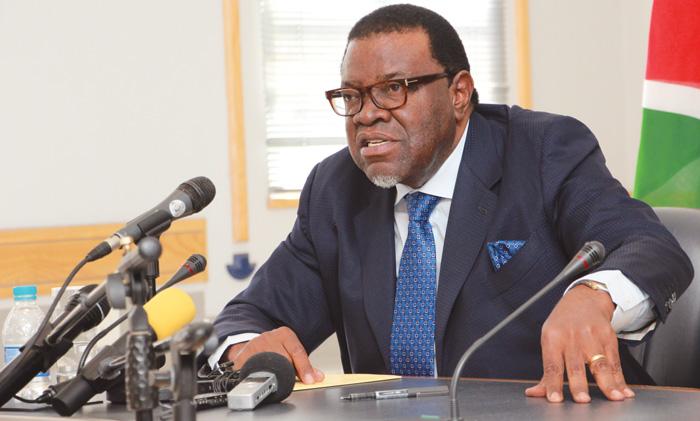
Geingob relaxes some COVID-19 health regulations despite slow vaccination uptake

The President, HE Dr Hage Geingob on Friday said at the current absorption rate of approximately 3,250 COVID-19 doses administered daily, the country is falling behind in reaching the herd immunity target.
Namibia is targeting to administer vaccines to 1.5 million eligible Namibians or 60% of the population, by 31 March 2022, he highlighted during his address to the nation during the 33rd COVID-19 public health regulations.
“These targets will not be realized without the full cooperation of the public. I therefore reiterate my call for all eligible Namibians to get fully vaccinated,” he added.
On a positive note, Geingob said Namibia has recorded a downward trend of new infections, hospitalizations, deaths, and positivity ratio which is bringing hope to the nation.
According to Geingob new Covid-19 infections have been suppressed over the weeks by various measures put in place, with the positivity ratio reduced from 28% to 15% on average.
With these positive developments, he announced new relaxed and adjusted regulations which will see public gatherings adjusted from 50 to 100 people; gyms, nightclubs, casinos will be allowed to operate, but will only allow patrons to half capacity and contact sports may resume without spectators.
Geingob meanwhile did not change some of the regulations, which will see the curfew remaining unchanged from 22:00hrs to 04:00hrs; sale of liquor remains restricted and on a take-away basis from 09:00 to 18:00.
The announced amendments will come in effect for 31 days from Saturday midnight up to 14 September.
“The road to recovery will be long but together, one step at a time, we will get there,” he said.












































